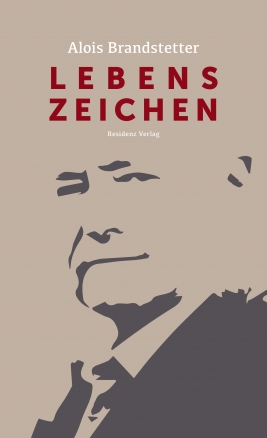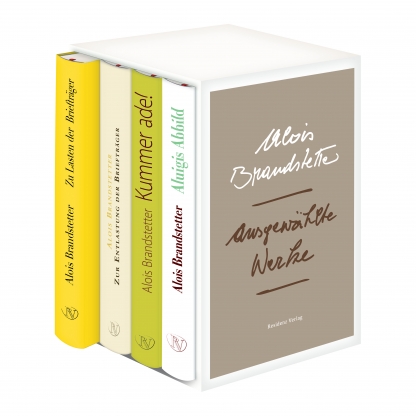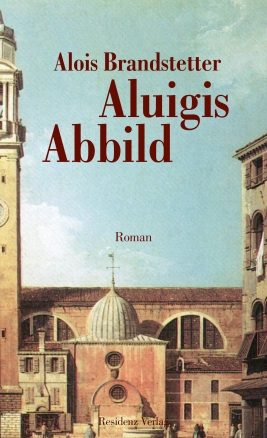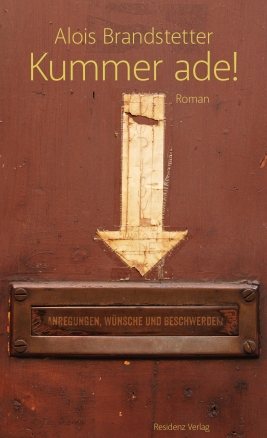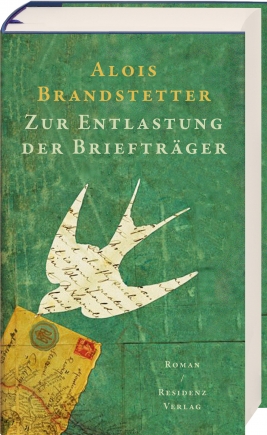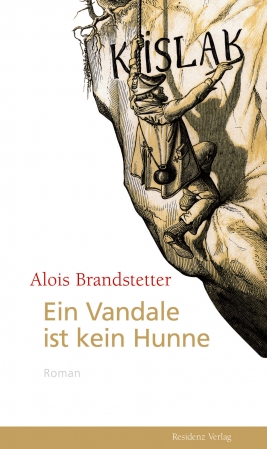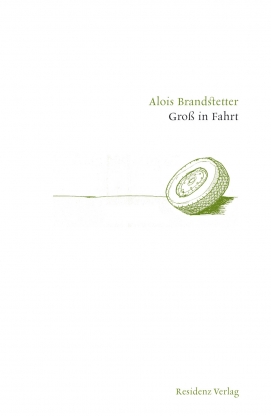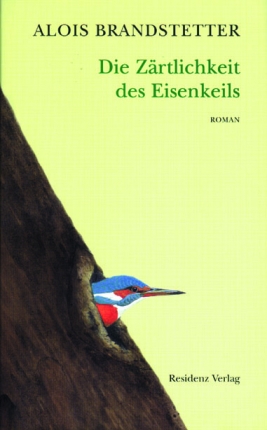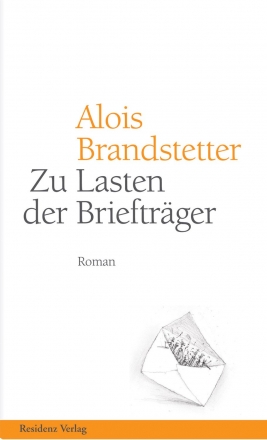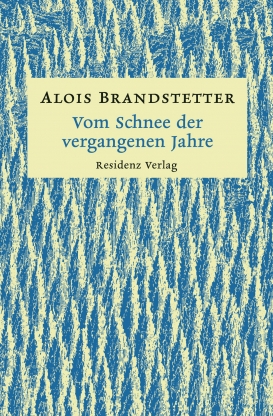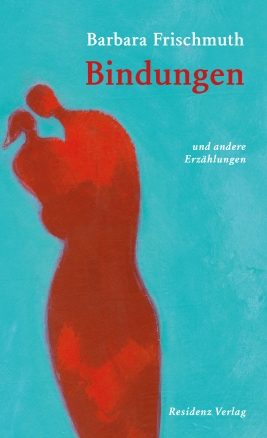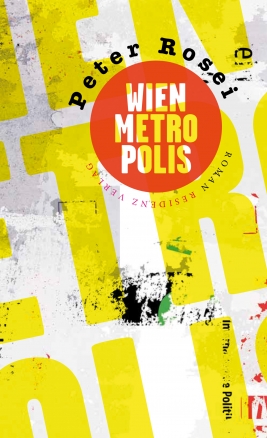Ein höchst vergnügliches, lehrreiches Lebenszeichen
[Quelle: Marianne Fischer, KLEINE ZEITUNG]
Es sind mit Rückgriffen auf allerlei Bildungsgut angestellte Betrachtungen zu Begebenheiten des Alltags, die Brandstetter glücklicher Weise nie allzu ernst nimmt.
[Quelle: TIROLER TAGESZEITUNG]
Für die Brandstetter-Lesergemeinde ist "Lebenszeichen" ohnedies Pflichtlektüre. Dieses sehr persönliche Buch ist auch für manche, die bislang an Brandstetters Literatur vorbeigegangen sind, eine gute Gelegenheit, einen großen Stilisten und klugen Menschenfreund kennen und schätzen zu lernen.
[Quelle: Christian Schacherreiter, OÖ NACHRICHTEN]
Ironie in blendender Form
[Quelle: Peter Grubmüller, OÖ NACHRICHTEN]
Lebenszeichen ist ein sehr persönliches Buch geworden, das die Fangemeinde erfreuen wird. Für solche, die Brandstetter noch nie gelesen haben, kann das Buch ein Einstieg in sein Oeuvre sein.
[Quelle: Maria Fellinger-Hauer, KIRCHENZEITUNG]
Famoses Essay-Buch
[Quelle: Egyd Gstätter, KLEINE ZEITUNG]
Ein schönes spätes Buch eines oft unter seinem Wert gehandelten, großen Autors.
[Quelle: Oliver Herzig, XING]
Weisheit kann sich also in späten Jahren als Schmunzeln enttarnen. Humor als humanistischer Wert? Alois Brandstetters Literatur darf als Beweis für die Richtigkeit dieser These gelten.
[Quelle: Ilse Gerhardt, KÄRNTNER WOCHE]
Scharfsinnig und ironisch widmet sich der oberösterreichische Autor den großen Fragen des Lebens ebenso wie den Details des Alltags.
[Quelle: OÖ Nachrichten]
Der österreichische Autor Alois Brandstetter besticht mit seiner demütigen, religiös grundierten Einsicht in die Grenzen des Menschen. (…) Ein sanfter Konservativer, ein großer Stilist, ein humorbegabter, humanistisch gebildeter Menschenfreund. Hören wir ihm zu.
[Quelle: Christian Schacherreiter, Wiener Zeitung]
Alois Brandstetter hält die Werte eines moderaten, humanen, katholisch geprägten Konservativismus hoch. Die vielzitierten christlichen Werte, sie bedeuten dem Schriftsteller etwas. (…) Eine maßvolle, gelöste Heiterkeit schwebt über Brandstetters Alterstexten, eine sanfte, menschenfreundliche Ironie, die stilistische Eleganz mit, fast möchte man sagen: montaignescher Gelassenheit verbindet. Leben und leben lassen, so lautet, scheint’s, das philosophische Credo des Autors. (…) Alois Brandstetter hat mit seinem aktuellen Buch ein kräftiges „Lebenszeichen“ von sich gegeben.
[Quelle: Günter Kaindlstorfer, Ö1 EX LIBRIS]
Seine Bücher brechen das Klischee vom heiteren Landleben, beschreiben das Chaos in der Idylle und bringen die Leser dank des zeitkritischen Untertons zum Nachdenken: (…).
[Quelle: TIROLER TAGESZEITUNG]
Meister des Worts, Humanist, Menschenfreund und (einer) der ganz großen österreichischen Schreibenden des 20. und 21. Jahrhunderts (…).
[Quelle: Hans-Jürgen Schrader, Laudatio Franz-Theodor-Csokor-Preis des österreichischen P.E.N.-Zentrums]
(…) Brandstetter (schöpft) genial und gleichmäßig aus dem Philosophischen.
[Quelle: Gudrun Trausmuth, TAGESPOST]
Alois Brandstetter weiß die Klaviatur der Jahrzehnte zu bedienen, beherrscht es, Bezüge herzustellen zwischen damals und heute, lässt die Welten – vergangene und gegenwärtige – näher rücken und nebeneinander stehen. (…) Eine geöffnete Schatzkiste eben.
[Quelle: Michaela Ogris Grinzinger, KULTURBERICHT OOE]
Lebenszeichen ist ein sehr persönliches Buch geworden (…).
[Quelle: DIOEZESE WIEN]
Die „Lebenszeichen“ sind (…) das bislang persönlichste Buch Brandstetters.
[Quelle: Christian Lehner, MEIN BEZIRK]
So g’scheit, so amüsant, so tief-/ hintergründig kann nur ein wirklich g’scheiter Mensch schreiben!
[Quelle: WOCHE KÄRNTEN]
Darin widmet sich Alois Brandstetter auf feine und ironische Weise den Details des Alltags und Fragen des Lebens.
[Quelle: KLAGENFURT]
Mit den 24 Essays dieses Bandes macht er sich und seinem Lesepublikum ein altersweises, oft lustiges, mitunter berührendes, immer aber unterhaltsames Geburtstagsgeschenk.
[Quelle: Renate Langer, BIBLIO]
Ironisch, blendend formuliert und mit Schmunzeln zu lesen, nimmt der österreichische Edelliterat Ereignisse und Entwicklungen aufs Korn.
[Quelle: BÜRGERMEISTERZEITUNG]
Ironische Kritik muss sein, geschimpft wird aber nicht. Mit anderen Worten, es handelt sich um ein Buch voller Anregungen, dabei aber auch geeignet zur Erholung für Seele und Geist.
[Quelle: D. Jestrzemski, PREUSSISCHE ALLGMEINE ZEITUNG]
